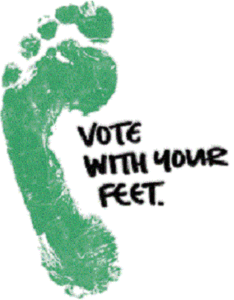It has long been a truism that if you want to know how people feel about a government and its policies, just open the borders. Then see whether people flood in or flee out.
Russians started fleeing in droves after President Vladimir Putin launched his invasion of Ukraine on Feb. 24. Now, his order of a partial military mobilization to help prop up his flagging military has prompted another surge of departures. More than 260,000 Russians, mostly men, have fled to neighboring Finland, Georgia and Kazakhstan by almost any means of transport, to avoid having to fight in an increasingly unpopular war. Some estimate the total outflow since the start of the war at 400,000.
In China, Beijing's Communist authorities have imposed some of the most stringent travel controls in years to prevent its citizens from fleeing. Citing the "great security risk" of the covid-19 pandemic, China has stopped issuing passports for "non-essential" travel outside China, essentially banning all leisure travel. Chinese hoping to flee the country's draconian pandemic controls and lockdowns have resorted to using shady online agents offering fake overseas job offers or bogus university acceptance letters.
China's financial hub, Shanghai, has also been seeing an exodus, with many citizens and expats fleeing after the city finally lifted its harsh two-month spring lockdown…
So many people are looking to leave that the phenomenon even has an internet name, "run xue," or run philosophy in English….
And then there's Hong Kong.
This former British colony this year recorded its biggest year-on-year population drop since record-keeping began in 1961. Some 113,000 residents left from midsummer 2021 to July of this year, marking a dramatic 1.6 percent population decline. And that comes on top of a nearly 90,000-person decline in 2020-21, and a 20,900 drop the year before….
Besides the anti-pandemic regime, the other major reason people are leaving is the imposition of the national security law in 2020 and Beijing's tightening grip on this once freewheeling city.
Public schools have been ordered to scrap "liberal studies," which are blamed for leading to Western-style free thinking and fomenting the 2019 protests. Instead, the government is instilling more mainland-style patriotic education in classrooms…. Many families with children say the school changes are their main motivation to leave….
Whether it's Russians, Chinese or Hong Kongers, the numbers don't lie. People tend to vote with their feet. And it's hard to see the trends reversing before the governments' policies do.
What is true in Russia itself is also true in the parts of Ukraine Russia is seeking to annex on the pretext that the Russian-speaking populations there prefer Russian rule. Foot voting evidence tells a very different story: when Russian forces take over, hundreds of thousands flee. When the Ukrainians retake territory, only small groups of collaborators run in the other direction.
Russia and China aren't the only governments facing large-scale rejection through foot voting. The socialist governments of Cuba and Venezuela have also generated massive refugee outflows. The 6 million people who have fled Venezuela in recent years are the largest refugee exodus in the entire history of the Western Hemisphere. Cuban outmigration falls short mainly because Cuba had a much smaller population to begin with.
By contrast, very few people are beating down the doors to enter Russia, China, Cuba, or Venezuela. Vladimir Putin's regime has little appeal even to the millions of ethnic Russians who currently live outside its borders, and might be thought of as potential backers of Putin's Russian nationalism. Similarly, few overseas Chinese are eager to return to the homeland to live under the rule of Xi Jinping. Cuban and Venezuelan socialism has little appeal to potential migrants from other Latin American nations, despite cultural and linguistic affinities. To the contrary, millions of Venezuelans have fled to Colombia, which is far from ideal, but still vastly preferable to life under socialism.
Foot voters generally make better-informed and more carefully reasoned choices than people voting at the ballot box. For that reason, their decisions are particularly strong indicators of the relative quality of different governments, and foot voting itself is an especially valuable mechanism of political choice.
Some European and American right-wingers have praised Vladimir Putin's nationalism as a compelling alternative to Western liberal democracy. China's more technocratic form of authoritarian nationalism - including its Zero-Covid policy - also has Western admirers. The same, of course, is true of Cuban and Venezuelan socialism. Even now, Fidel Castro and Hugo Chavez (founders of Cuba's and Venezuela's socialist states) are heroes to some on the left.
The evidence of people voting with their feet gives the lie to such narratives. Foot voters overwhelmingly reject these kinds of regimes. And many more would do so if the US and other liberal democracies were more open to accepting them.
Elsewhere, I have argued for opening Western doors to Russian and Chinese migrants fleeing their respective oppressive governments. It's the right thing to do for a combination of moral, economic, and strategic reasons. Many of the same points also apply to Cuban and Venezuelan refugees, though the strategic rationale is somewhat weaker, because these two states are less significant geopolitical rivals than Russia and China.
During the Cold War, many Westerners came to understand that the eagerness of people to flee communist regimes was a sign of their inferiority. The same is true of today's nationalist and socialist alternatives to liberalism.



Show Comments (37)